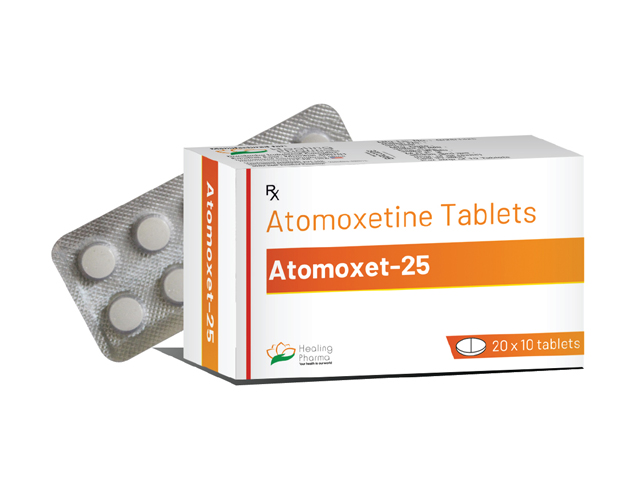Description
Common use
Thorazine is used to treat certain mental or mood disorders such as schizophrenia, anxiety, the manic phase of manic-depressive disorder, and restlessness, before surgery, porphyria, severe conduct and behavioral disorders in children, nausea and vomiting, and severe hiccups. It can be used to treat symptoms associated with tetanus. Its active component is phenothiazine. It blocks dopamine receptors in the brain.
Dosage and directions
Use Thorazine as prescribed by your doctor. Take it by mouth with or without food. It can cause stomach upset, so take it with food to reduce stomach irritation.
Precautions
Before taking Thorazine tell your doctor about all the conditions you may have, especially if you are pregnant, planning to become pregnant or breastfeeding, if you are taking any medicines prescribed and not prescribed, herbal products or dietary supplement, if you have allergies to medicines, food, etc, if you have history of heart problems, blood problems, high blood pressure, liver problems such as cirrhosis, kidney problems, seizures or epilepsy, Parkinson disease, enlarged prostate gland, Reye syndrome, alcohol abuse or if you consume more than 3 alcoholic drinks per day, if you have lung infections, asthma and other lung problems, glaucoma, increased pressure in the eyes or if you are have a risk of glaucoma.
Contraindications
Do not take Thorazine if you have allergy to any of its components or similar medicines such as phenothiazines, if you have bone narrow problems or you are taking certain antiarrhythmic agents, dofetilide, astemizole, cisapride, ketolide antibiotics, macrolide antibiotics, pergolide, pimozide, terfenadine, ziprasidone, streptogramins.
Possible side effects
The most common possible side effects of Thorazine are dizziness, agitation, enlarged pupils, nausea, stuffy nose, jitteriness, dry mouth, drowsiness.
Severe side effects include: severe allergic reactions (rash; hives; itching; difficulty breathing; tightness in the chest; swelling of the mouth, face, lips, or tongue); changes in menstrual period; changes in sexual ability; dark urine; difficulty swallowing; drooling; fainting; fast or irregular heartbeat; fever, chills, or sore throat; involuntary movements or spasms of the arms and legs, tongue, face, mouth, or jaw; mask-like face; muscle restlessness; prolonged or painful erection; restlessness; seizures; shuffling walk; sleeplessness; stiff or rigid muscles; stomach pain; sweating; trouble urinating; unusual eye movements or inability to move eyes; unusual mood or mental changes, including lack of response to your surroundings; vision changes; weakness of arms or legs; yellowing of the skin or eyes.
Drug interaction
Tell you doctor about all the medicines prescribed and not prescribed you may take especially about:
*Thiazide diuretics (eg, hydrochlorothiazide) because they may increase the risk of Thorazine’s side effects
*Barbiturates (eg, phenobarbital), hydantoins (eg, phenytoin), or narcotic pain medicines (eg, codeine) because the risk of their side effects may be increased by Thorazine
*Arsenic, astemizole , beta-blockers (eg, propranolol), certain antiarrhythmic agents (eg, quinidine), cisapride, dofetilide, droperidol, epinephrine, haloperidol, ketolides (eg, telithromycin), macrolide antibiotics (eg, erythromycin), pimozide, quinolone antibiotics (eg, ciprofloxacin), streptogramins (eg, quinupristin), terfenadine, or ziprasidone because the risk of side effects, such as racing heartbeat, dizziness, fainting, and life-threatening irregular heartbeat leading to unconsciousness, may be increased by Thorazine
*Anticholinergics (eg, atropine) because they may decrease Thorazine’s effectiveness
*Anticoagulants (eg, warfarin), guanethidine, and pergolide because their effectiveness may be decreased by Thorazine
Missed dose
If you miss a dose of Thorazine, take it as soon as possible. If it is almost time for your next dose, skip the missed dose and go back to your regular dosing schedule. Do not take 2 doses at once.
Overdose
Symptoms of overdose of Thorazine are twitching, deep sleep or loss of consciousness, seizures, tremors, restlessness, muscle spasms.
Storage
Store Thorazine at room temperature, between 59 and 86 degrees F (15 and 30 degrees C), in a tightly closed container away from heat, moisture, and light. Do not store in the bathroom. Keep Thorazine out of the reach of children and away from pets.
Disclaimer
We provide only general information about medications which does not cover all directions, possible drug integrations, or precautions. Information at the site cannot be used for self-treatment and self-diagnosis. Any specific instructions for a particular patient should be agreed with your health care adviser or doctor in charge of the case. We disclaim reliability of this information and mistakes it could contain. We are not responsible for any direct, indirect, special or other indirect damage as a result of any use of the information on this site and also for consequences of self-treatment.











Reviews
There are no reviews yet.